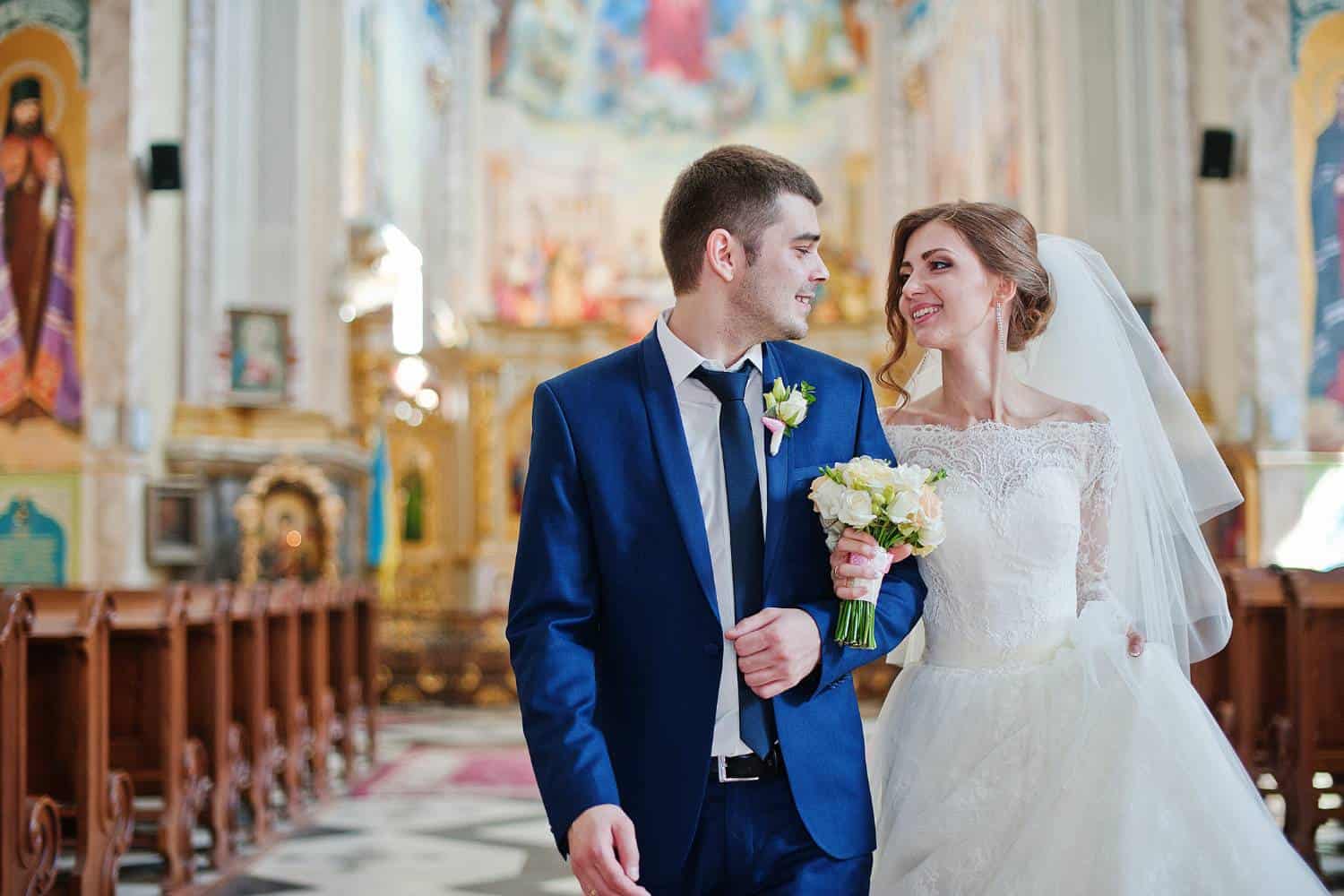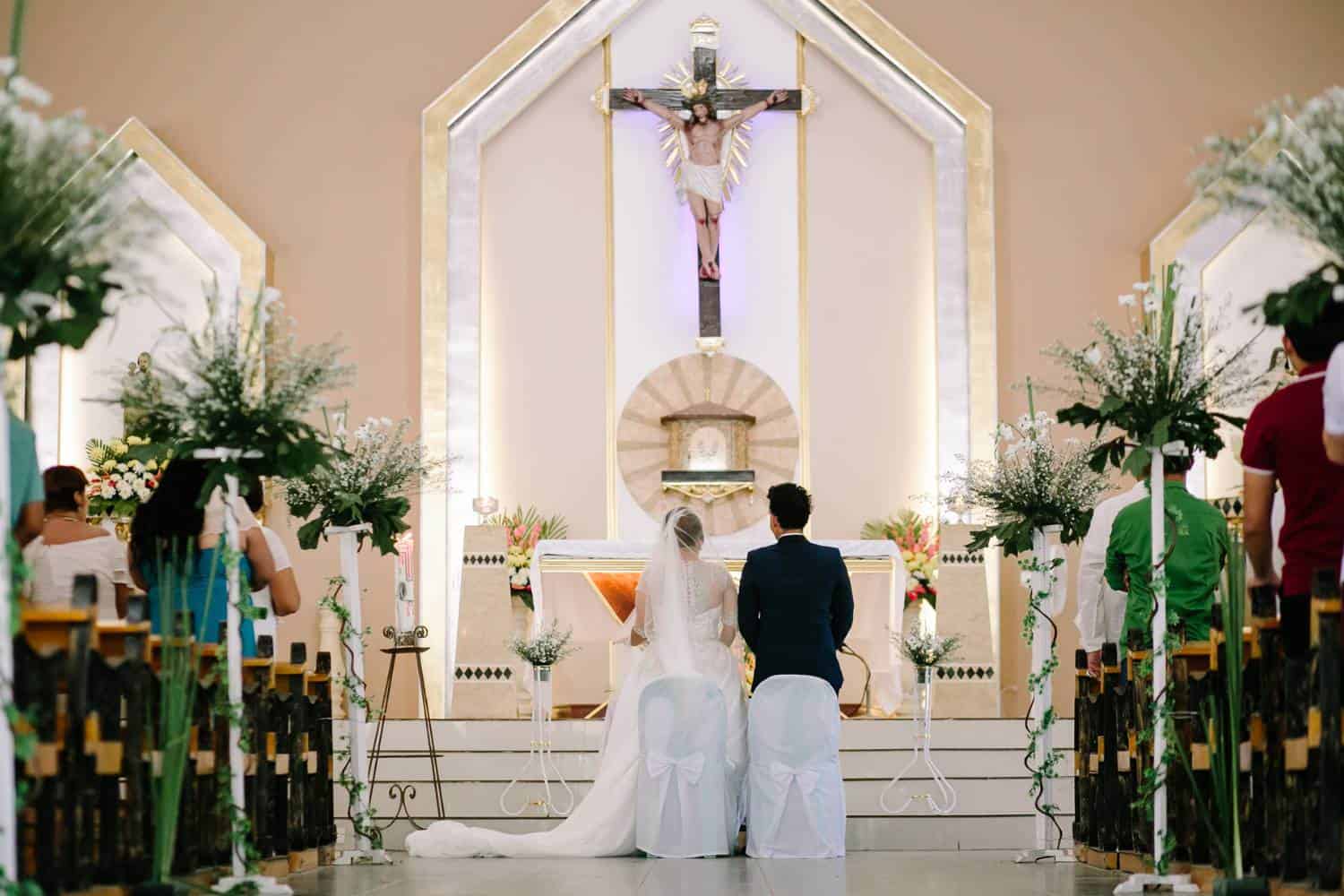With all the planning that goes into a wedding, many couples wonder if a wedding website is necessary.
Although not essential, a wedding website can be a helpful tool for organizing details and streamlining communication with guests.
From managing RSVPs to providing travel information, a wedding website serves as a central hub, keeping everyone informed and reducing the stress of coordinating your big day.
Here, we’ll explore the benefits of creating a wedding website and why it may be worth considering for your special event.
Let’s get straight to the point.
A wedding website can simplify planning and communication by providing guests with key details such as the schedule, venue information, and RSVPs all in one place.
It streamlines the RSVP process, offers easy access to travel and accommodation options, and helps guests stay informed with real-time updates.
While a wedding website isn’t necessary for small, intimate weddings, it becomes highly beneficial for larger or destination weddings.
The setup is easy, with many free platforms available, and the website can be personalised to share your story and registry links.
It’s an eco-friendly, cost-effective option that saves time, reduces paper waste, and enhances guest experience.
Traditional communication or wedding planning apps can work as alternatives, but a wedding website remains valuable for organising a smooth, stress-free event.
What Is A Wedding Website?
A wedding website allows couples to share important details about their event, including the date, venue, directions, accommodation options, and RSVP links.
Some couples add personal touches, like engagement photos or their love story, creating a more engaging experience for their guests.
Though you can certainly manage a wedding without one, a website acts as a central hub, providing all the details in one place and reducing the need for follow-up calls and emails.
Benefits Of Having A Wedding Website
Easy Access To Information
A wedding website allows guests to access all the relevant information they need.
Whether they’re checking the schedule, location, or dress code, everything is available with a quick visit to the site.
This convenience helps avoid confusion and the need for multiple reminders.
Guests won’t need to keep track of printed invitations and can refer to the website whenever they need details, making it easier for everyone involved.
Simplified Rsvp Process
Managing RSVPs can be time-consuming. A wedding website allows guests to RSVP online, saving you the hassle of dealing with paper reply cards.
Many platforms offer real-time tracking of responses, including meal preferences or dietary needs.
Digital RSVPs are much easier to organise and keep up-to-date, allowing you to finalise your guest list with minimal effort.
Travel And Accommodation Information
For guests travelling from out of town, a wedding website offers a convenient place to find accommodation options, transport links, and local attractions.
Providing this information helps guests plan their trip without contacting you for recommendations.
Including maps and hotel suggestions help guests feel prepared and reduce the likelihood of last-minute queries.
Personalising Your Wedding Website
Share Your Story
Your wedding website allows you to share your relationship journey with guests.
Whether it’s how you met or details about the proposal, adding personal stories helps your guests feel connected to your day, especially those who may not know your partner well.
Sharing these moments adds a personal touch that goes beyond formal invitations.
Integrating Your Registry
Many couples need help including registry details in their invitations. A wedding website lets you link directly to your registry, giving guests the necessary information without forcing it on them. This option lets guests contribute at their convenience.
You can even offer group gift options where multiple guests can contribute to larger items, like your honeymoon or home purchases, making gift-giving easier.
Wedding Countdown And Real-Time Updates
A countdown feature is a fun addition to a wedding website, helping build excitement leading up to the day.
The site also allows you to post real-time updates for guests, such as any changes in venue, schedule, or other details.
This flexibility means you don’t have to send out revised invitations, saving time and avoiding confusion if plans change.
Is A Wedding Website Necessary?
Practical Considerations
A wedding website is optional for some weddings. For smaller, intimate ceremonies with manageable guest lists, personal phone calls or emails might be sufficient to keep everyone informed. In this case, a website could feel unnecessary.
However, if you’re hosting a larger or destination wedding, where guests need more details, a website becomes a useful tool for managing information and communicating updates effectively.
Time And Cost Investment
Setting up a wedding website is relatively easy, with most platforms offering free basic options and simple templates.
While premium services can provide additional features like personalised domains and advanced design options, these extras aren’t always necessary.
Given the time saved in managing RSVPs and answering guest queries, the minimal effort required to create a website is often well worth it.
Alternatives To Wedding Websites
Traditional Communication
If you decide against a wedding website, you can still communicate effectively through traditional means.
Providing detailed inserts with your invitations or using group emails can ensure guests receive all the necessary information.
Phone calls are another personal way to follow up with guests, particularly for smaller weddings.
This approach might suit couples who prefer a more intimate or less tech-forward way of engaging with their guests.
Wedding Planning Apps
Another alternative is using a wedding app, which can offer features similar to a website’s.
These apps usually include RSVP tracking, event scheduling, and guest management. Guests can access the details from their smartphones, making it easy to stay current.
However, wedding apps require guests to download and use them, which may not appeal to everyone, especially those less tech-savvy.
Environmental And Cost Benefits
Reducing Paper Waste
Opting for a wedding website instead of printing all details can help reduce your event’s environmental impact.
You cut down on paper waste by limiting the need for physical RSVPs, maps, and information cards. For eco-conscious couples, this is a simple yet meaningful way to make your wedding more sustainable.
Budget-Friendly
Most wedding website platforms offer free services, which include basic features like RSVP tracking and design templates.
There may be a small fee to upgrade to a custom domain or use advanced features, but these options are still affordable compared to printing physical materials.
A wedding website can save time and money, reducing the need for follow-up mailings and printing expenses.
Conclusion
A wedding website can simplify communication and planning, offering a centralised hub for guests to access key details.
It provides convenience, especially for larger weddings or events with guests travelling from afar, making managing RSVPs, travel information, and gift registries easier.
For most couples, the benefits far outweigh the potential downsides. Whether it’s the eco-friendly option, the ease of sharing updates, or the fun of personalising your site, a wedding website is a helpful tool.
While it may not be essential for every wedding, it’s a worthwhile consideration for those looking to streamline their planning process and enhance their guests’ experience.
Frequently Asked Questions
How Do I Describe My Wedding Website Dress Code?
Try to use familiar terminology such as black tie, cocktail attire, semi-formal, or dressy-casual. It also helps to list some attire suggestions to help guests understand your vision better. For example for a black tie wedding you might add – tuxedos or dark suits for gentlemen, gowns or cocktail attire for the ladies.
What Is the Purpose of a Wedding Website?
The primary purpose of the wedding website is to give guests a central hub where they may find information about your big day.
Can Wedding Websites Be Private?
You’re able to make your website private by creating a password that guests will need in order to view it. There are currently three tiers of privacy available on Blueprint: A website and registry may be set private from Google searches.
Can You Put a Password on a Wedding Website?
When you first create your wedding website, it will not automatically require a password for guests to view. However, you can easily add this option at any point.
How Do You Say No Guests on Wedding Website?
“Unfortunately, we cannot accommodate guests not indicated in the invitation. Rest assured that you will be seated with people you know!” “We politely request that only the people listed in the invitation be present. We hope to have a bigger celebration with everyone at a different time!”



